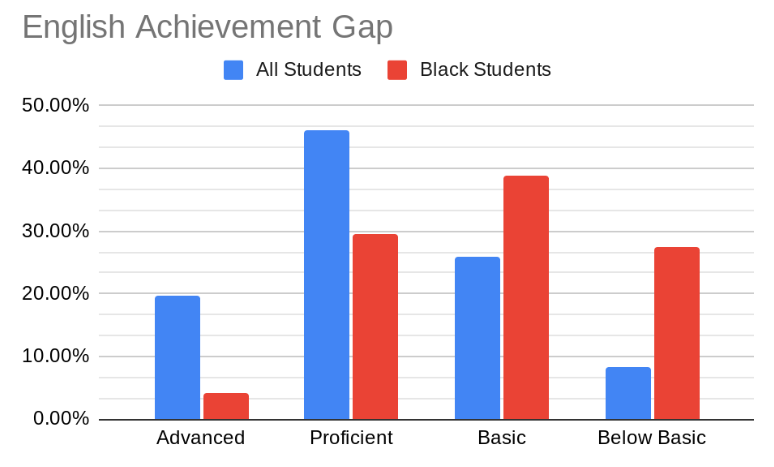158 to 1: A Lack of Diverse Educators
Image by Oladimeji Ajegbile from Pexels.
Owen Peterson
The story of Ruby Bridges, the first person to integrate an all-white school, is one that I, thankfully, cannot relate to at all. My commute to school does not require an escort from the U.S. Marshals as Ruby’s did. My classes are not defined by leering glances from classmates, or jeers of racism, as Ruby’s were. My life is not one that will be written about in the history books as Ruby’s is. However, our lives do share a common feature. We both attend schools that have no Black teachers on their payrolls.
The HHS student handbook states that its staff and administration is “here to serve ALL of [its] students and families.” Yet the lack of a diverse staff undercuts this mission statement as they fail to serve parts of the minority student body. As a member of this group, I have only ever had White teachers after a decade in the Hamilton School District. This parallels the experience of most minorities as the districtwide ratio of black students to black teachers is 158:1.
The end goal of hiring more Black teachers is not diversity for the sake of diversity. The need to hire Black teachers doesn’t come out of a desire to fit into some “woke” agenda or make the staff photo look better. The point is that there is documentation, data, and numerous studies that show students of all races perform better in the classroom when they have teachers of the same race.
A study conducted by Stanford professor Thomas Dee showed that both Black and White students alike achieved higher scores in both reading and math when being taught by a teacher of their own race. This goes beyond just test scores as well. Other studies that have been conducted over the past 15 years find that a staff that contains minority representation is correlated with better student outcomes when it relates to discipline, gifted/advanced placement courses, and special education, etc.
Needless to say, in a high school that contains a staff with exactly zero Black staff members, the odds are stacked against an already marginalized group.
In a pure numbers game, Black men may face the worst odds. They are significantly more likely to drop out of high school than their peers, almost twice as likely to be suspended, and the least likely to take AP courses. For the group most likely to drop out of high school, poor Black men, exposure to a Black elementary school teacher decreased dropout rates by 39%. This effect remains in place, although to a lesser extent, in high school.
Black History month is important, not because of Instagram posts or pointless virtue signaling, but because it gives us the chance to reflect on how modern life for Black Americans has changed for the better and how it can still be improved. Hamilton High School sits at the center of this reflection as it has the unique position of being at the intersection between a high achieving school and a student body that is 3% Black.
Taking a look at Hamilton's score card from the DPI, the gap between Black and all other students at Hamilton is staggering. This is true in math especially, where the majority of Black students fall in the “Below Basic” category. When looking at the school as a whole, Hamilton is highly successful; therefore, the main goal for the future should not just be to maintain these high standards but increase the investment into improving the outcomes of a clear outlier.
Hamilton’s math achievement gap.
Hamilton’s English achievement gap.
If HHS is looking to improve outcomes for its minority students who lag behind the pack, the solution is simpler than all the Social Emotional Learning (SEL) programs and committee meetings could accomplish. As Black History month comes to a close, I say to the Hamilton School District to do what Little Rock Central High couldn’t get right in 1957 and hire a staff that truly represents the students they serve.








